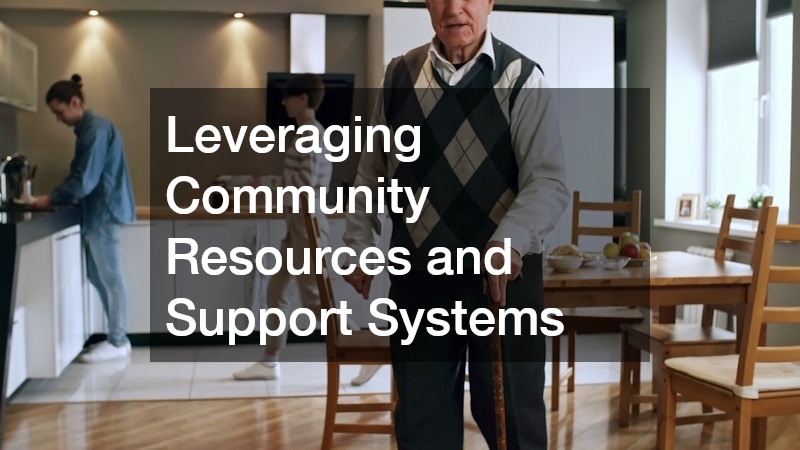
Caregiving is a vital responsibility that often requires balancing medical, emotional, and daily life needs of those who can no longer fully take care of themselves. Whether you’re assisting family members, working in a professional setting, or volunteering your time, understanding your role as a caregiver is crucial. It’s important to recognize that caregivers in Marlton, NJ and similar areas, often face a unique set of challenges that can demand a blend of patience, empathy, and organizational skills. The role of a caregiver can be physically demanding and emotionally taxing, requiring effective strategies to manage such challenges and maintain personal well-being.
Appreciating the intricacies of caregiving can help you approach your responsibilities with a sense of purpose and fulfillment.
Communication is at the heart of effective caregiving, enabling you to understand and address the needs and concerns of those you’re caring for. Establishing clear lines of communication not only helps in providing better care but also builds a trusting relationship that allows for transparency and honesty. Making time for regular check-ins with your care recipient, as well as their family members, can ensure everyone is aligned regarding the care plan and any adjustments that may be necessary. Furthermore, understanding the physical and emotional cues of the person you’re caring for can provide deeper insights into their well-being, leading to more thoughtful and respectful interactions. Always remember, effective communication is not just about speaking, but also about listening actively and empathetically.
Caregivers often grapple with balancing their responsibilities with personal life, creating a high-risk environment for burnout. It’s essential to set boundaries and prioritize self-care to maintain your own health and effectiveness over the long term. Engaging in regular physical activity, pursuing hobbies, and taking time out for relaxation are vital practices that can help reduce stress levels. Additionally, caregivers should not hesitate to seek support through counseling or support groups, where they can share experiences and strategies with others in similar situations. By maintaining a balance between caregiving duties and personal life, caregivers can sustain their health and provide the best possible care for their recipients.
Effective Strategies for Daily Caregiving Tasks
Daily tasks can often seem overwhelming, but creating a structured approach can significantly alleviate the pressure associated with caregiving duties. Developing a daily routine that accommodates both your needs and those of your recipient can help in managing time more efficiently, fostering a sense of stability and predictability. Prioritizing tasks based on urgency and importance ensures that crucial elements of care are not neglected. Moreover, utilizing tools such as planners or apps specifically designed for caregivers can help you stay organized, track medical appointments, medications, and other vital information. Implementing these strategies allows the caregiver to focus on delivering attentive and compassionate care without becoming overwhelmed by the multitude of responsibilities.
The physical demands of caregiving can vary widely, from helping with mobility to managing medical equipment. It’s important to be educated in safe handling and transferring techniques to prevent injury to both the caregiver and recipient. Attending training sessions, seeking advice from physical therapists can provide essential knowledge and skills needed for caregiving. Furthermore, having a space that is organized and equipped to meet the specific medical and personal needs of your care recipient can make daily tasks smoother and more efficient. Ensuring that you have a clear understanding of the necessary equipment and methods is integral to providing effective and safe care.
Emotional resilience is a critical component in managing the daily stresses of caregiving. As a caregiver, it’s crucial to develop coping mechanisms, whether it’s through relaxation techniques such as deep breathing exercises, meditation, or engaging in nurturing hobbies. Identifying sources of emotional support, whether through family, professional networks, or community services, can also provide the necessary encouragement and strength. Caregivers in Marlton, NJ, for example, have access to a variety of resources and support groups designed to address the emotional challenges they face. By nurturing your emotional health, you’ll be better equipped to handle the ups and downs of caregiving, thus maintaining a positive and supportive environment for both you and your care recipient.
Leveraging Community Resources and Support Systems

Caregivers don’t have to navigate their responsibilities alone; community resources can be invaluable in providing assistance and respite. Initiatives and programs aimed at supporting caregivers can offer respite care, financial assistance, or educational resources to manage caregiving effectively. Caregivers in Marlton, NJ, can access a range of support services aimed at easing the burden, ensuring they have a network they can turn to for help and advice. Understanding what resources are available, and how to access them, can significantly enhance your ability to provide high-quality care while reducing personal stress. By integrating community resources into your caregiving strategy, you can ensure a well-rounded approach to managing both your needs and those of your recipient.
One of the most effective ways for caregivers to maintain their well-being is by actively participating in support groups. These communities offer a platform to share experiences, advice, and encouragement, providing a sense of community and belonging. Support groups, both online and offline offer a space where caregivers can discuss challenges and find solace in shared experiences. The mutual understanding and camaraderie found in these settings can foster resilience and reduce feelings of isolation. Actively seeking out and engaging with such communities can be an essential aspect of sustaining both mental and emotional health amid the demands of caregiving.
Navigating the healthcare system can often be a daunting task, given its complexity and rapidly changing nature. Understanding and leveraging available services can make a substantial difference in the quality of care you can provide. Educating yourself on necessary medical information, insurance options, and legal rights can empower you in your caregiving role, making interactions with medical professionals more effective. Participating in workshops, consulting with experts, and staying informed through reputable sources can enhance your understanding of the landscape, enabling you to advocate effectively for your care recipient. By actively engaging with and understanding these systems, caregivers are better positioned to make informed decisions that benefit those under their care.



